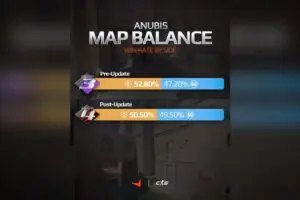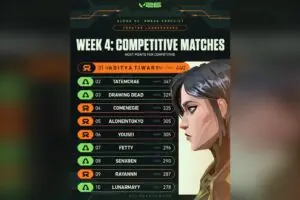It’s a convoluted mess at the moment, but one that could very well echo throughout the professional Counter-Strike scene for years to come. At the center of it all is the young Finnish player Elias ‘Jamppi’ Olkkonen, who received a VAC ban four years ago when the account was correlated with the usage of cheating software within official match-making servers for Counter-Strike: Global Offensive.
Receiving a VAC ban means that the player associated with the account can never join a Major, as their integrity is compromised and is likely to bring further incidents to Counter-Strike play.
Further, the permanent ban from CS Majors is to serve as an additional deterrent for players that enjoy ruining matches for others.
Elias Olkkonen is seeking for his VAC ban to be removed from his record, the allowance to play in Majors, and a wild sum of money from Valve: over $300,000 dollars due to ‘missed opportunities’. Jammpi is currently signed to ENCE as of late April this year.
It’s a bizarre case where the cheating has been proven, and the consequences have been rendered, and the holder of the account that has cheated is displeased with the verdict that has been rendered already by Valve.
Elias Olkkonen is bringing to his defense a timeless classic from cheaters around the globe; it was ‘his friend’ that cheated on the account, and not him. Elias states that he purchased the account from said friend after the friend had cheated, yet before the account was attached to Elias’s identity by Valve.
While monotonous court proceedings are the absolute bane of society, this one holds some weight; Valve failing to defend their actions in a court of law means that the professional scene for Counter-Strike could suffer some damage to its integrity, as previously banned players could simply drag Valve to court to reverse the VAC ban and the consequences that come with it.
Even if you’re not entirely keen on the CS: GO scene, this court case could bring precedent to other cases in esports, thus ultimately weakening competitive play (and cheating deterrent) as a whole.
According to the Polish outlet ‘is.fi’, Valve is to make a statement on the court case in Stockholm on June 15; they are obviously invested in ensuring that they can defend their actions, which is a bizarre statement to make.
Ultimately, Counter-Strike is owned by Valve, and they have absolute control over their Majors, the biggest tourneys for CSGO. The idea that a kid can rake them over the proverbial coals for protecting the competitive integrity of their owned IP, which is successful due to the integrity, is a fascinating case that will likely set a precedence for the esport industry as a whole, regardless of how it pans out.





